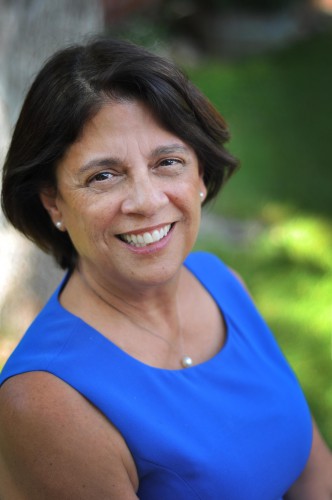
(From Press Release) AB 1665, Joint-Authored by several bipartisan Assemblymembers, including Cecilia Aguiar-Curry (D – Winters), Eduardo Garcia (D – Coachella), and Brian Dahle (R – Bieber), passed out of the Assembly Communications and Conveyance Committee this week with a 12 – 0 vote. This bill memorializes the successful negotiation of a $330 million package to expand broadband access and digital literacy to communities deprived of a reliable internet connection.
Past efforts to increase funding to close the connectivity gap between the “haves” and the “have-nots,” known as the “Digital Divide,” were intensely opposed by the largest telecommunications companies. AB 1665 is the product of bipartisan legislative leadership. After a three-year stalemate, this bill represents a cooperative effort between legislators and representatives from the telecommunications industry to invest in broadband access and rural development.
“People don’t start businesses in areas where they can’t even send an email,” said Assemblymember Aguiar-Curry. “When I was the Mayor of Winters, I watched families get their first email address. I saw farmworkers finally have a platform to talk to their kids’ teachers despite their work hours. I know first-hand how internet access can transform a community. AB 1665 will transform communities across California.”
The California Advanced Services Fund (CASF) is a state program aimed at closing the Digital Divide. The CASF does not depend upon General Fund dollars, but instead is funded by a small surcharge on in-state phone bills spread out over a 5 year period. The current goal of this program is to incentivize the expansion of broadband infrastructure to 98% of California households. However, Assemblymember Aguiar-Curry and her partners successfully negotiated to expand this goal to 98% of households in every geographic region of the state, assuring that rural California would be served as well, instead of the target being satisfied in urban areas alone.
Testifying in support of AB 1665, Assemblymember Dahle said, “Using this regional approach to provide internet to historically unserved and underserved communities, we will be able to help our schools, students, and small businesses, and effectively connect rural constituencies to the rest of the world. This bill will provide services to rural areas of the state that have long been forgotten, or seen as too difficult and remote to provide service.”
Yet, the Digital Divide is not a problem unique to rural Northern California. “30% of Californian households do not have access to high speed internet or a computer,” said Assemblymember Eduardo Garcia (D-Coachella). “Low income urban and rural communities like those of my district are most affected by this deficit. Providing internet connectivity will open up educational, health and economic opportunities to ensure we do not leave behind our most vulnerable.”
AB 1665 passed with a unanimous vote of 12 – 0 in the Assembly Communications and Conveyance Committee, where Democrat Chair Miguel Santiago (D-Los Angeles) requested to be added as a coauthor on the bill after voting in favor of the measure. AB 1665 will be heard next in the Assembly Appropriations Committee.
“I want to thank Chairman Santiago for helping to convene an extensive stakeholder process which ultimately led to our successful effort,” said Aguiar-Curry. “This is 2017. In today’s global economy, having internet access is not an option; it is a necessity. When we invest in broadband expansion and digital literacy, we are investing in education, access to health care, and economic development.”
Aguiar-Curry represents the 4th Assembly District, which includes all of Lake and Napa Counties, parts of Colusa County, all of Yolo County except West Sacramento, Dixon in Solano County, and Rohnert Park in Sonoma County.






Come on…This is another tax! This AD rep has now proposed that everyone accept a surcharge to in-state phone calls. The cause may be just, but the source for $330 million dollars is a tax. An investor could have been found.
There are many vulnerable people and they are not all necessarily rural. $330 million dollars can be spent many ways. I am not arguing the benefits of rural internet, just the fact that a tax for one project can be a tax for another. It is TAXATION.
Agreed… folk should vote for such a tax, but I’d be favorably inclined. Might need the service… don’t now, but it’s kinda’ like ‘insurance’.